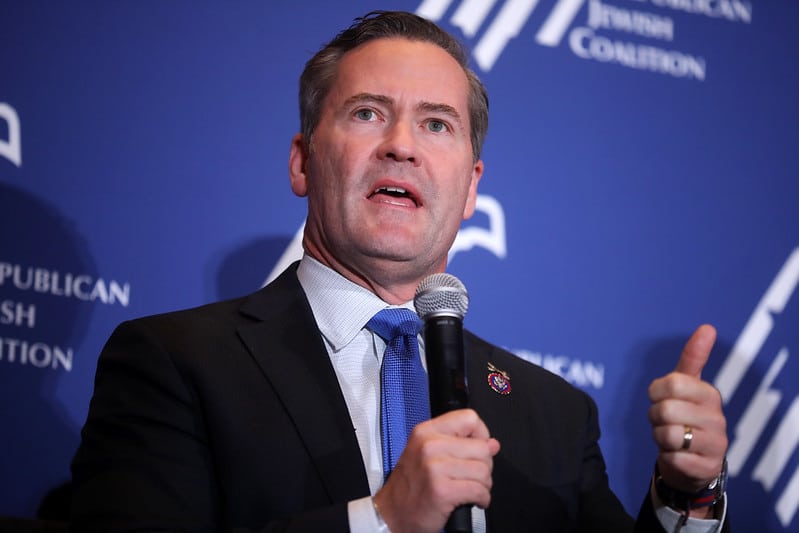President-elect Donald Trump has named Rep. Mike Waltz of Florida as his incoming National Security Advisor, continuing his streak of choosing some of the most hardline men in the Republican Party to run his foreign policy. Waltz may not be as well-known as John Bolton or Michael Flynn, but he has an extremely hawkish record that includes his effort to restart the war in Afghanistan and his sponsorship of a resolution to authorize starting a new conflict against cartels in Mexico. A veteran of the war in Afghanistan himself, Waltz opposed the withdrawal in 2021, and if he had his way the United States would be at war there again.
Waltz is also an Iran and China hawk, and he has praised Trump’s policies in Latin America, including the economic war against Venezuela, as a great success. The congressman was recently cheering on the prospect of a “return to maximum pressure” against Iran under a new Trump administration. Based on the Waltz appointment and the rest of the national security team that Trump is assembling, the second Trump administration is shaping up to be at least as aggressive and confrontational as the first one.
While Waltz has sometimes talked about bringing the wars in Ukraine and Gaza to a conclusion, his proposals are focused entirely on more coercion and escalation. He co-wrote a piece with notorious Iran hawk Matt Kroenig for The Economist shortly before the election in which they called for ratcheting up sanctions on Russia and Iran, lifting most restrictions on how Ukraine uses American weapons, and “put a credible military option on the table” to threaten Iran over its nuclear program. This is the sort of mindless hawkishness that Trump is embracing by picking Waltz.
U.S.-China rivalry is also set to get worse under the next administration. Trump is filling his administration with some of the most combative China hawks, reportedly putting Florida Senator Marco Rubio in charge of the State Department. While he is a hawk on every issue, Waltz views China as the “greater threat” and believes that the United States should devote more military resources to the Pacific. To the extent that he is interested in winding down wars elsewhere, it is only so that the U.S. can pursue the rivalry with China without distractions.
There is a real danger that the next administration will follow through on the threats to launch attacks in Mexico. Trump has been interested in some sort of military option there for years; he and J.D. Vance campaigned on using force against cartels, and now Trump has picked one of the leading advocates of military action in Mexico as his top adviser. Using the U.S. military to attack the cartels isn’t going to end the flow of drugs into our country, but it will destabilize Mexico, drive more people to flee to our border, and provoke a violent reaction against U.S. law enforcement. The U.S. and Mexico would both be less secure because of American military intervention, and the U.S. would be flagrantly violating Mexico’s sovereignty in waging such a war.
Republican hawks like to repeat the phrase “peace through strength” to defend their support for ever-higher levels of military spending, but in practice they are never very interested in the peace part of that formulation. The phrase serves as little more than window dressing to conceal their reckless militarism. Hawks like Waltz are interested in fueling conflicts where they exist and sparking them where they don’t, and all the while they will insist that they don’t want war.
A president interested in fewer wars and fewer overseas entanglements would not choose someone like Waltz for this position. As his own record on Afghanistan shows, Waltz is not someone who wants to extricate the United States from unnecessary conflicts and commitments. The U.S. seems likely to increase its security commitments if Trump follows Waltz’s recommendations.
Trump’s foreign policy in his first term was defined by escalating ongoing wars and waging cruel economic wars against entire populations. Most of Trump’s policies were failures on their own terms and left the U.S. and the affected countries worse off than they were before. Some of those policies brought the U.S. dangerously close to waging new wars.
Trump is once again surrounding himself with hardliners who will be urging him to use force and to tighten sanctions even more. The president-elect appears to have learned nothing from the failures of his first administration, and he seems to want to repeat them. If Trump heeds Waltz’s advice, the United States will be heading for disaster in several places at once.
































